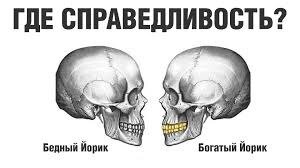
Categories
- Art (356)
- Other (3,632)
- Philosophy (2,814)
- Psychology (4,018)
- Society (1,010)
Recent Questions
- Why did everyone start to hate the Russians if the U.S. did the same thing in Afghanistan, Iraq?
- What needs to be corrected in the management of Russia first?
- Why did Blaise Pascal become a religious man at the end of his life?
- How do I know if a guy likes you?
- When they say "one generation", how many do they mean?
Fair and mutually beneficial cooperation is all the more profitable (in terms of net profit) for the parties, the longer-term partnership they expect. This can be proved by game theory – or at least by the prisoner's dilemma with repeated games.
And in short-term or one-time transactions, it is more profitable to throw your partner.
Since no one is interested in being thrown out, society at all levels builds mechanisms that would prevent this. In the case of the government, such a mechanism has long been the monarchy, which was supposed to ensure confidence in the government at the expense of its long – term duration-if not he, then his children will have to reap the benefits of the ruler's actions. But there are many shortcomings in this system, so now monarchies are everywhere replaced by representative democracy. In it, power is distributed among competing parties that strive to survive longer, that is, they are interested in mutually beneficial cooperation with voters.
The latter, of course, is beneficial for the authorities, as Machiavelli clearly showed.) �
In a society of injustice, the authorities have an excellent function – the function of a” fighter for justice”, a” guarantor of justice”, who is like” above the fray”, and to whom all those who are unjustly offended can complain…That is the question “Why are these people controlling me at all?” the unjustly offended person is replaced by the thought ” How good that there is someone to complain about the rich and oppressors!”))
This mechanism is very well illustrated, for example, in Solovyov's story about Khoja Nasreddin: no matter how stupid and hungry the emir looks, he still seems to be at least some kind of protection from the moneylender Jafar who is ruining you…)
But in a normal country, society should build not what is beneficial for the authorities, but what is beneficial for society. And the government is simply called upon to serve this building, as long as society allows it.